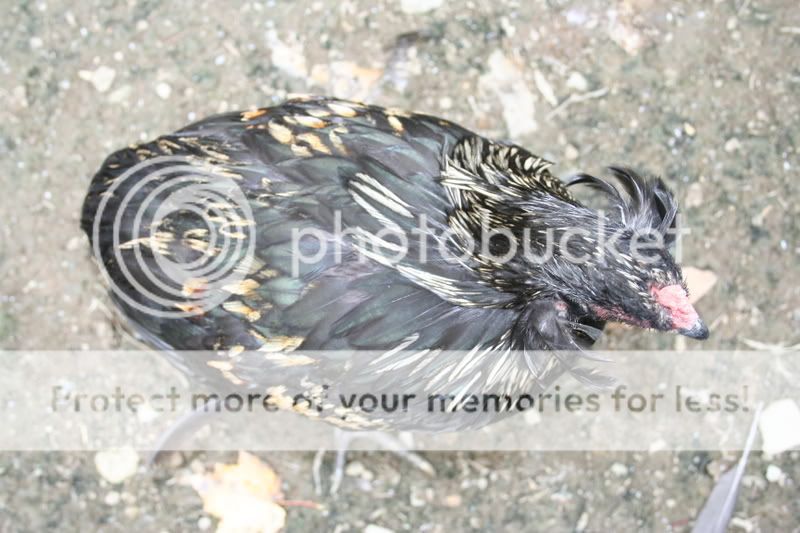Quote:
It's actually both. They get it from all sides!
The rumpless characteristic makes it more difficult for the birds to breed successfully -- so the eggs are not always fertilized. THEN you have to deal with the lethal tufted trait.
I guess there's a point to preservation of all the breeds, but I'd think the ability to survive would be high on the list. It never seemed like a good idea to me to deliberately breed any kind of animal that can't live without special help. Weakening the species, basically. There's a reason for survival of the fittest, in the wild!
There are deleterious traits in many breeds of many domesticated species. For example, the merle trait in many breeds of dogs can lead to deafness and blindness. The spotting trait in dalmatians can lead to deafness, and many dals have problems with bladder stones. The tailless trait in manx cats can lead to incontinence and even paralysis. The dwarfism of miniature horses is obviously maladaptive, as is hydrocephaly in toy breeds like chihuahuas. And so on and so forth. Heck, even the extreme laying trait in layers, and the extreme weight gain in broilers, are deleterious to the bird's survival. It happens all the time!
I know it's true, it does happen all the time. I wish it didn't. I think it's a shame what we've done to some animals, genetically. In some cases, like German Shepards, we've taken perfectly wonderful dogs and turned them into cripples, with hind legs splayed so badly they kind of scrabble and slither along, they can't walk normally. I've seen this, in a dog show ring, with a dog that was actually a
winner. It was disgraceful. And his owner looked
proud.
I can't condone any breeding practice that adversely affects the health of the animal. Deliberately breeding weakness into any species is not a good idea, even if it is common.
The extreme laying ability in layers breeds and extreme weight gain of the meat breeds are excellent illustrations. Those aren't the healthiest birds, at least the meat birds. I've never raised the extreme egg layers, they probably aren't as bad as the Cornish X's, but I know they wear out long before a more moderate breed, such as an Australorp or a Orpington. I'm beginning breeding experiments of my own to produce a more sustainable, healthier meat bird. They won't grow as fast, but I bet they'll be a heck of a lot healthier, and a few more weeks growth is acceptable to me, for a better bird.
 And as far as the other goes, it seems that with the rarity of the breed..... it would be better for people to attempt to perpetuate the breed even if the lines are not show quality than for people to be discouraged due to the lack of large numbers of show quality birds... just my 2 cents.
And as far as the other goes, it seems that with the rarity of the breed..... it would be better for people to attempt to perpetuate the breed even if the lines are not show quality than for people to be discouraged due to the lack of large numbers of show quality birds... just my 2 cents.







